Professional Courses
Industry-relevant training in Business, Technology, and Design
Categories
Interactive Games
Fun games to boost memory, math, typing, and English skills
Typing
Memory
Math
English Adventures
Knowledge
A Guide to All Engineering Branches Based on How Many Seats in JEE Advanced Exist
A Guide to All Engineering Branches Based on How Many Seats in JEE Advanced Exist
.jpg?width=500)
When students think about JEE Advanced, most picture Computer Science at IIT Bombay or IIT Delhi. While CSE is indeed the most sought-after branch, it’s not the only option. The IITs offer a wide variety of programs like Mechanical, Electrical, Civil, Chemical, Aerospace, Metallurgical, Engineering Physics, and more. Each has its own strengths, career paths, and future opportunities.
So when aspirants ask, “How many seats in JEE Advanced are there?”, the answer isn’t just a number. Around 17,000–17,500 seats are spread across 23 IITs, but those seats are divided into different branches. Understanding what each branch entails helps you make smart choices during counselling not just chasing the most popular, but finding what’s right for you.
This guide breaks down all major engineering branches available through JEE Advanced, what they involve, their career prospects, and which IITs are considered best for each.
How Many Seats in JEE Advanced? The Big Picture
Before diving into branches, let’s look at the overall numbers. Across the 23 IITs, there are about 17,000+ undergraduate seats filled via JEE Advanced each year. These include General, OBC-NCL, SC, ST, GEN-EWS, and PwD categories.
But those 17,000 seats aren’t evenly distributed. Around 2,000–2,500 seats go to Computer Science, another 2,000–2,500 to Mechanical, and similar ranges for Electrical and Electronics. The rest are spread across Civil, Chemical, Metallurgical, Mining, Engineering Physics, Biosciences, and interdisciplinary courses.
This means you have multiple paths to an IIT, depending on your rank and interests.
The Big Four: CSE, Mechanical, Electrical, Civil
Computer Science and Engineering (CSE)
The most competitive branch by far, CSE is the first choice for top rankers. With only about 2,000–2,500 seats across IITs, the competition is intense. CSE offers unmatched placement opportunities in software, AI, data science, finance, and global tech companies.
Best IITs for CSE: IIT Bombay, IIT Delhi, IIT Madras, IIT Kanpur, IIT Hyderabad.
Mechanical Engineering
Mechanical is one of the oldest and broadest fields. It deals with machines, robotics, thermodynamics, and manufacturing. Around 2,200 seats are available across IITs. While not as popular as CSE now, it remains core to industries like automotive, aerospace, energy, and robotics.
Best IITs for Mechanical: IIT Madras, IIT Kanpur, IIT Kharagpur, IIT Bombay.
Electrical Engineering (EE)
Covering power systems, electronics, and control systems, Electrical has around 2,000 seats across IITs. Graduates work in energy, automation, electronics, and increasingly, IT.
Best IITs for Electrical: IIT Bombay, IIT Delhi, IIT Kanpur, IIT Madras.
Civil Engineering
One of the foundational branches, Civil has about 1,500–1,700 seats. It focuses on infrastructure like buildings, bridges, transport, and water resources. Civil is essential for a growing economy, though placements are often core-sector focused.
Best IITs for Civil: IIT Roorkee, IIT Kharagpur, IIT Bombay.
Chemical, Metallurgical, and Materials
Chemical Engineering
Chemical Engineering blends chemistry, physics, and engineering to design processes in pharmaceuticals, fuels, food, and energy. Around 1,200–1,400 seats exist across IITs.
Best IITs for Chemical: IIT Bombay, IIT Delhi, IIT Madras, IIT Kanpur.
Metallurgical and Materials Engineering
This branch studies metals, alloys, nanomaterials, and materials science. Around 600–800 seats are offered. While less popular in rank preference, it has niche demand in aerospace, defence, automotive, and R&D.
Best IITs for Metallurgy/Materials: IIT Kharagpur, IIT BHU, IIT Madras.
Mining Engineering
A smaller branch with fewer than 300 seats total. Focused on extraction of minerals, mining engineering is offered mainly at IIT Kharagpur and IIT BHU.
Best IITs for Mining: IIT Kharagpur, IIT BHU.
Interdisciplinary and Modern Fields
Engineering Physics
Engineering Physics merges physics with electronics, computation, and nanotechnology. Around 400–500 seats exist. It suits students aiming for research, quantum computing, or advanced tech industries.
Best IITs for Engineering Physics: IIT Bombay, IIT Delhi, IIT Kanpur.
Aerospace Engineering
With 500–600 seats, Aerospace Engineering covers aircraft, spacecraft, propulsion, and aerodynamics. Career paths include ISRO, DRDO, defence, and global aviation firms.
Best IITs for Aerospace: IIT Kanpur, IIT Bombay, IIT Madras.
Biotechnology and Biosciences
IITs also offer Biotechnology, Bioengineering, and related interdisciplinary courses. About 300–400 seats exist. Career prospects are in healthcare, genetics, pharma, and research.
Best IITs for Biotechnology: IIT Kharagpur, IIT Delhi, IIT Madras.
Environmental Engineering
A smaller but emerging branch, with under 200 seats total. It focuses on sustainability, waste management, and renewable energy.
Best IITs for Environmental: IIT Kharagpur, IIT BHU.
Mathematics & Computing / Data Science
One of the fastest-growing options, with about 500–600 seats. It combines math, statistics, and computing, an alternative to CSE. High demand in AI, finance, and analytics.
Best IITs for M&C/Data Science: IIT Delhi, IIT Kanpur, IIT BHU.
Female Supernumerary Seats
In recent years, IITs introduced supernumerary seats for female candidates to improve gender balance. Around 15–20% of total seats are reserved this way. This boosts opportunities for girls across branches.
How Seat Count Affects Branch Choice
When deciding a branch during JoSAA counselling, knowing how many seats in JEE Advanced exist helps you strategise:
- If you’re aiming for CSE, remember it has limited seats and extremely high cutoffs.
- Branches like Civil, Metallurgical, and Mining have larger seat availability compared to demand, so cutoffs are lower.
- Interdisciplinary branches like Engineering Physics and M&C offer modern career paths with fewer seats but strong opportunities.
Career Prospects Across Branches
- CSE, M&C, Data Science: Highest salaries, international offers, diverse roles.
- Mechanical, Electrical, Civil, Chemical: Core industry placements, stable jobs, opportunities in PSU and higher studies.
- Aerospace, Metallurgy, Physics, Bio: Niche but high-value careers in R&D, academia, and specialized industries.
- Interdisciplinary branches: Rapid growth due to demand in AI, sustainability, biotech, and nanotech.
Choosing the Best IIT by Branch
- Best for CSE: IIT Bombay, IIT Delhi, IIT Madras.
- Best for Mechanical: IIT Madras, IIT Kanpur, IIT Kharagpur.
- Best for Civil: IIT Roorkee, IIT Kharagpur.
- Best for Electrical: IIT Bombay, IIT Delhi, IIT Kanpur.
- Best for Aerospace: IIT Kanpur, IIT Bombay.
- Best for Metallurgy/Materials: IIT Kharagpur, IIT BHU.
- Best for Biotechnology: IIT Kharagpur, IIT Delhi.
- Best for Engineering Physics: IIT Bombay, IIT Delhi.
How to Decide Your Branch
Don’t just follow the herd. CSE is popular, but if your interests lie in core engineering, Mechanical or Chemical could be better.
Think long-term. Branches like Data Science and Bioengineering are emerging fields with great future demand.
Balance rank with interest. A top IIT in a less popular branch may still offer better opportunities than a lower IIT in CSE.
Preparing for JEE Advanced With Branch Choice in Mind
While it’s tempting to daydream about branches, remember that the first step is qualifying JEE Advanced itself. Your rank will determine what’s realistically available.
If you’re in Class 11 or Class 12, focus on mastering the syllabus and mock practice. If you’re younger in Class 9 or Class 10 then start strengthening fundamentals now. Platforms like AllRounder.ai align school learning with JEE prep so you’re ready when the time comes.
Final Thoughts
So, how many seats in JEE Advanced are there? Around 17,000+, divided across 23 IITs and dozens of branches. But numbers alone don’t decide your future. Each branch, whether Computer Science, Mechanical, Aerospace, or Metallurgy, offers unique opportunities.
The key is not just getting into IIT, but choosing a branch that fits your strengths and ambitions. With clarity, preparation, and smart counselling choices, you can secure a seat that opens the door to an exciting career.
And with structured guidance from AllRounder.ai, you can prepare effectively, avoid burnout, and give yourself the best shot at both cracking JEE Advanced and choosing the branch that truly suits you.
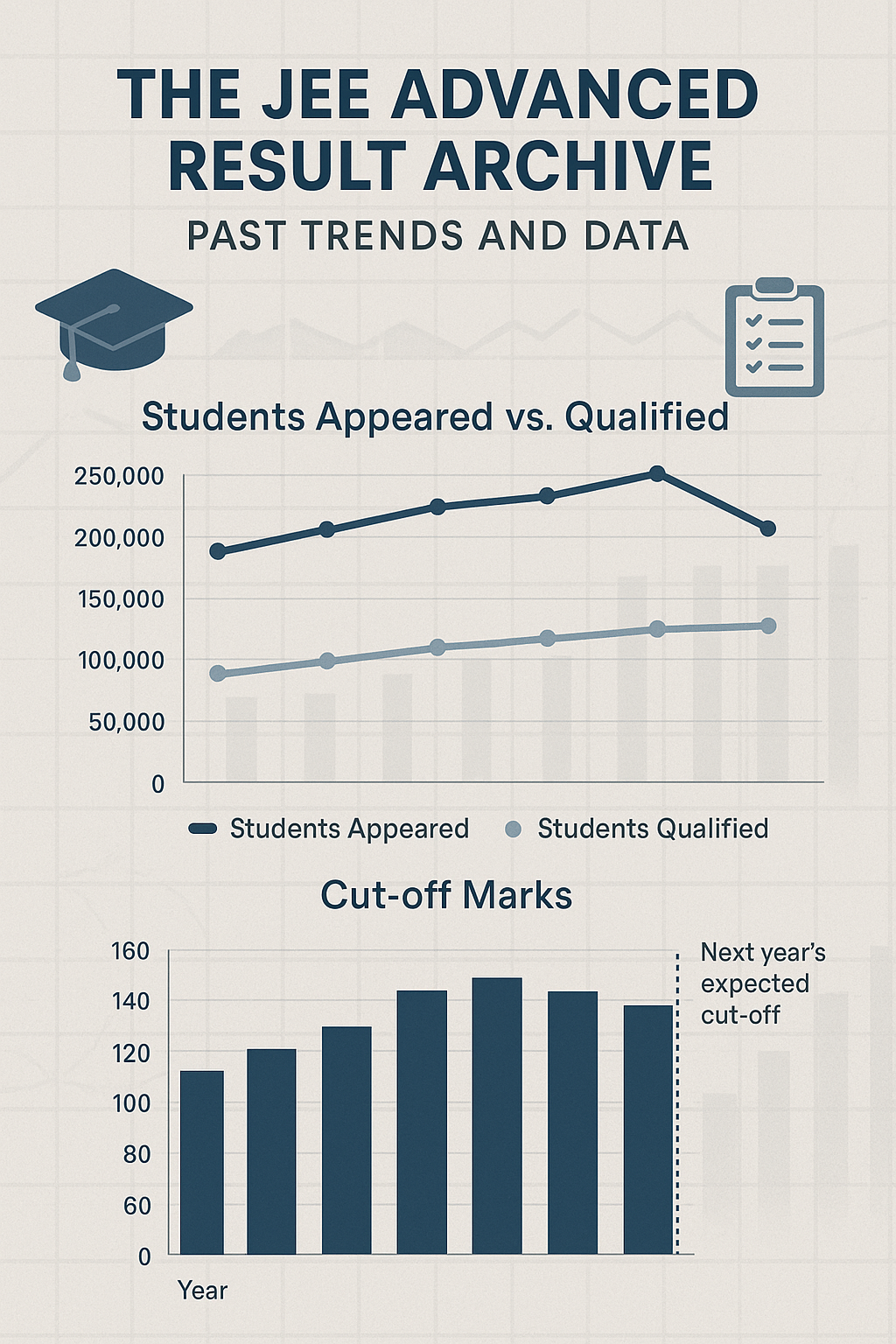
Explore the JEE Advanced Result Archive with past years’ data, insights on students appeared vs qualified, cut-off...

Got your JEE Advanced result? Here’s the complete step-by-step guide to the JoSAA counselling process from...
.jpg?width=500)
How many seats in JEE Advanced? Explore IIT seat distribution across all branches like CSE, Mechanical, Aerospace,...
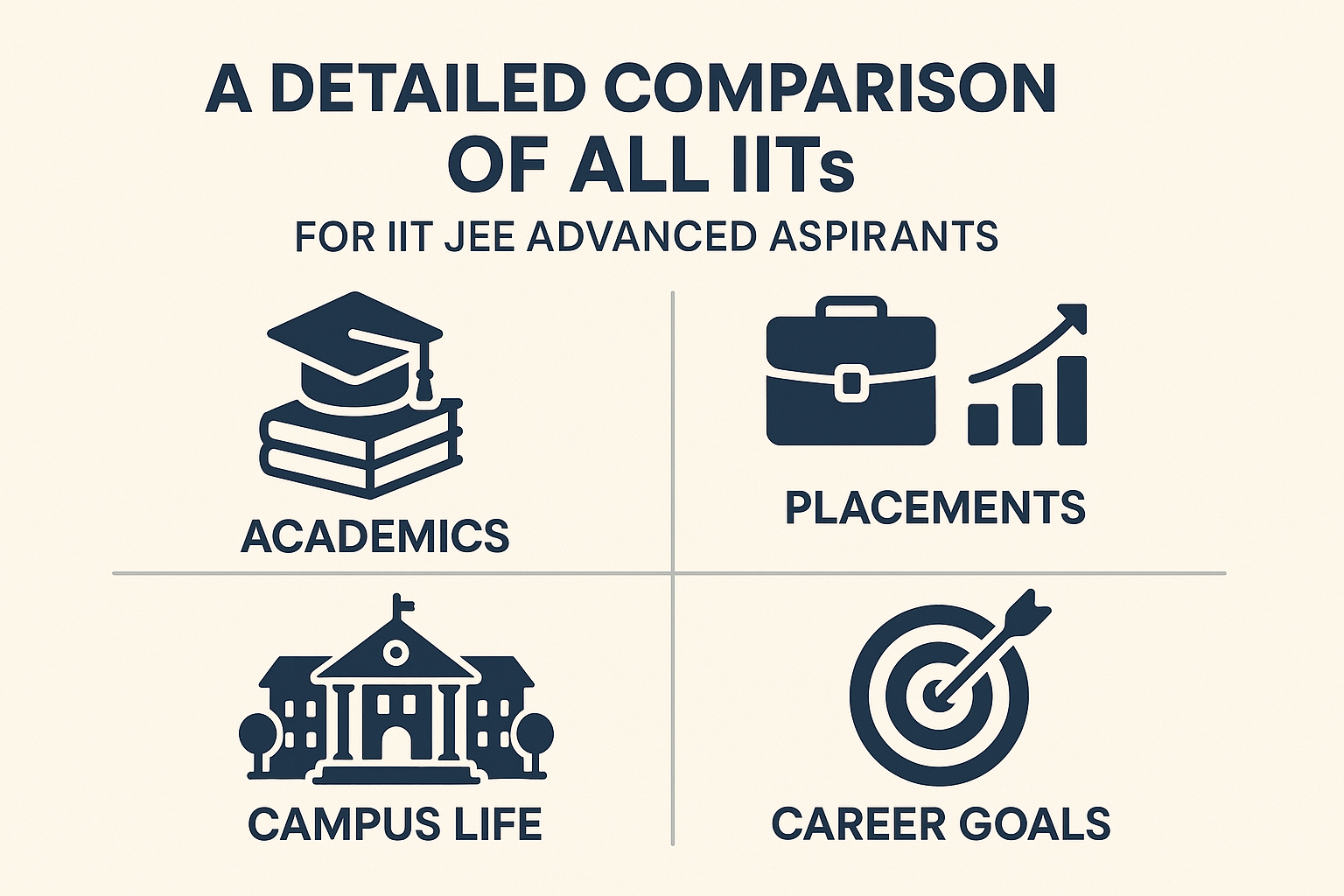
Compare all IITs for JEE Advanced aspirants. Learn about academics, placements, campus life, and find which IIT is...
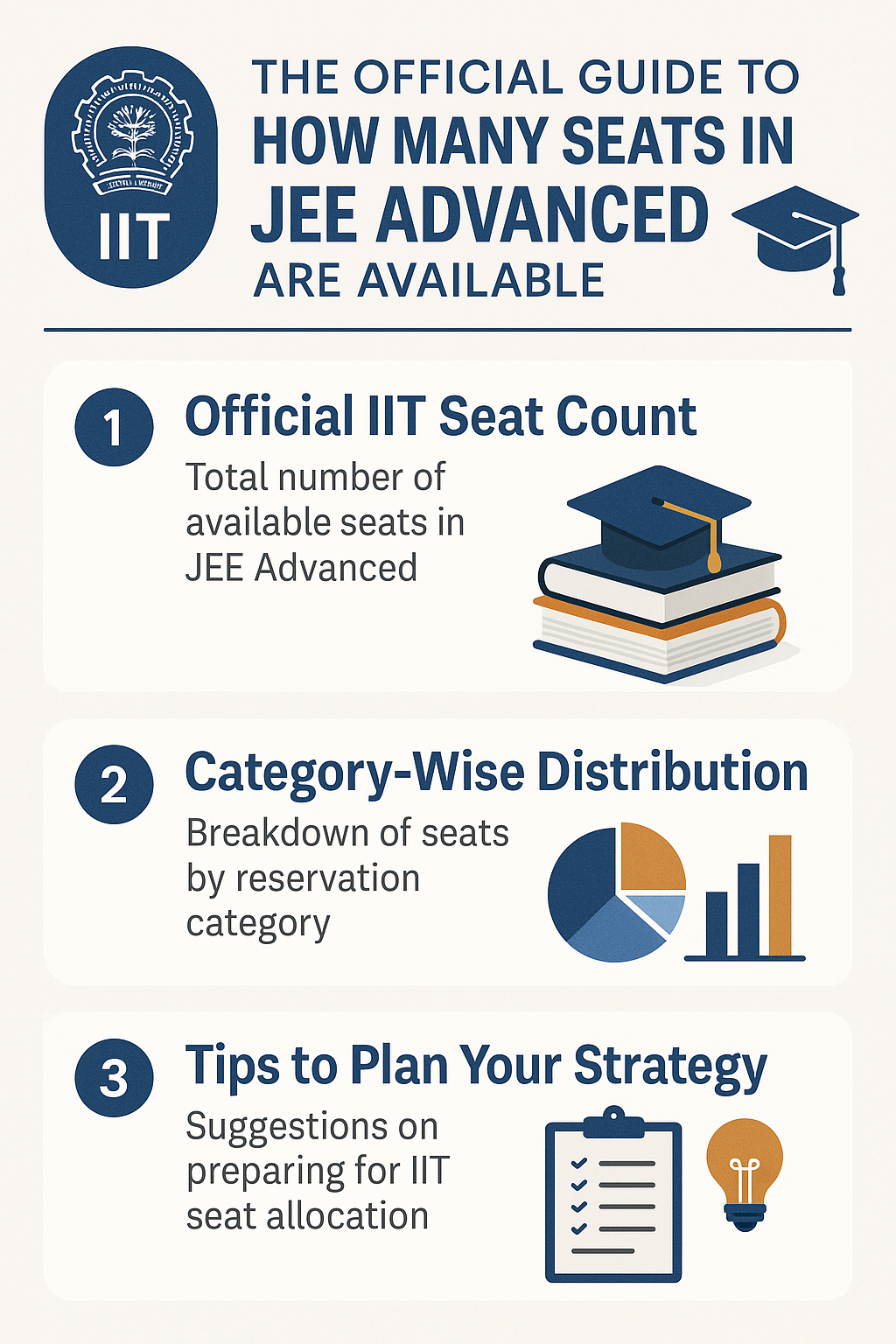
Wondering how many seats in JEE Advanced are available? Get the official IIT seat count, category-wise distribution,...
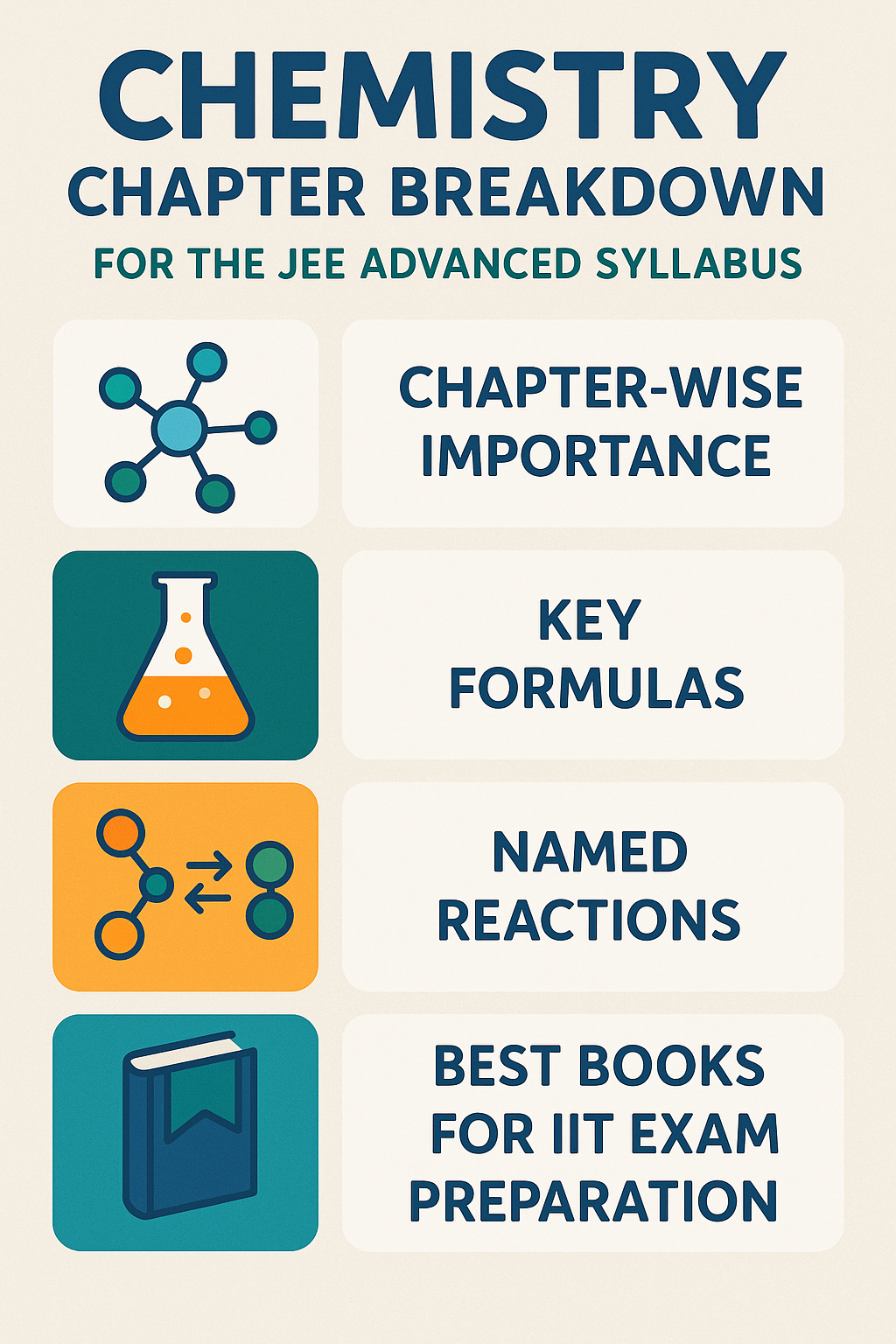
Explore the Chemistry JEE Advanced syllabus with chapter-wise importance, key formulas, named reactions, and the...
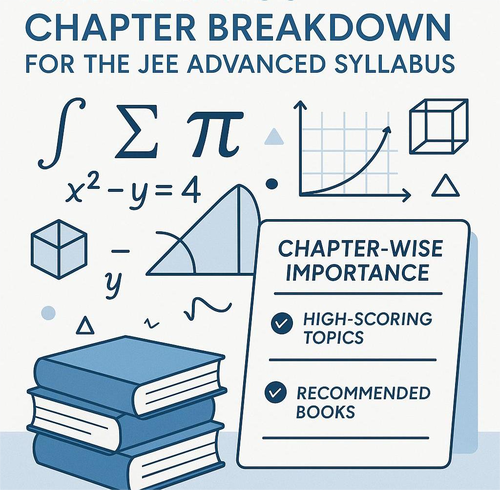
Explore the Maths JEE Advanced syllabus with chapter-wise importance, high-scoring topics, and the best books to...
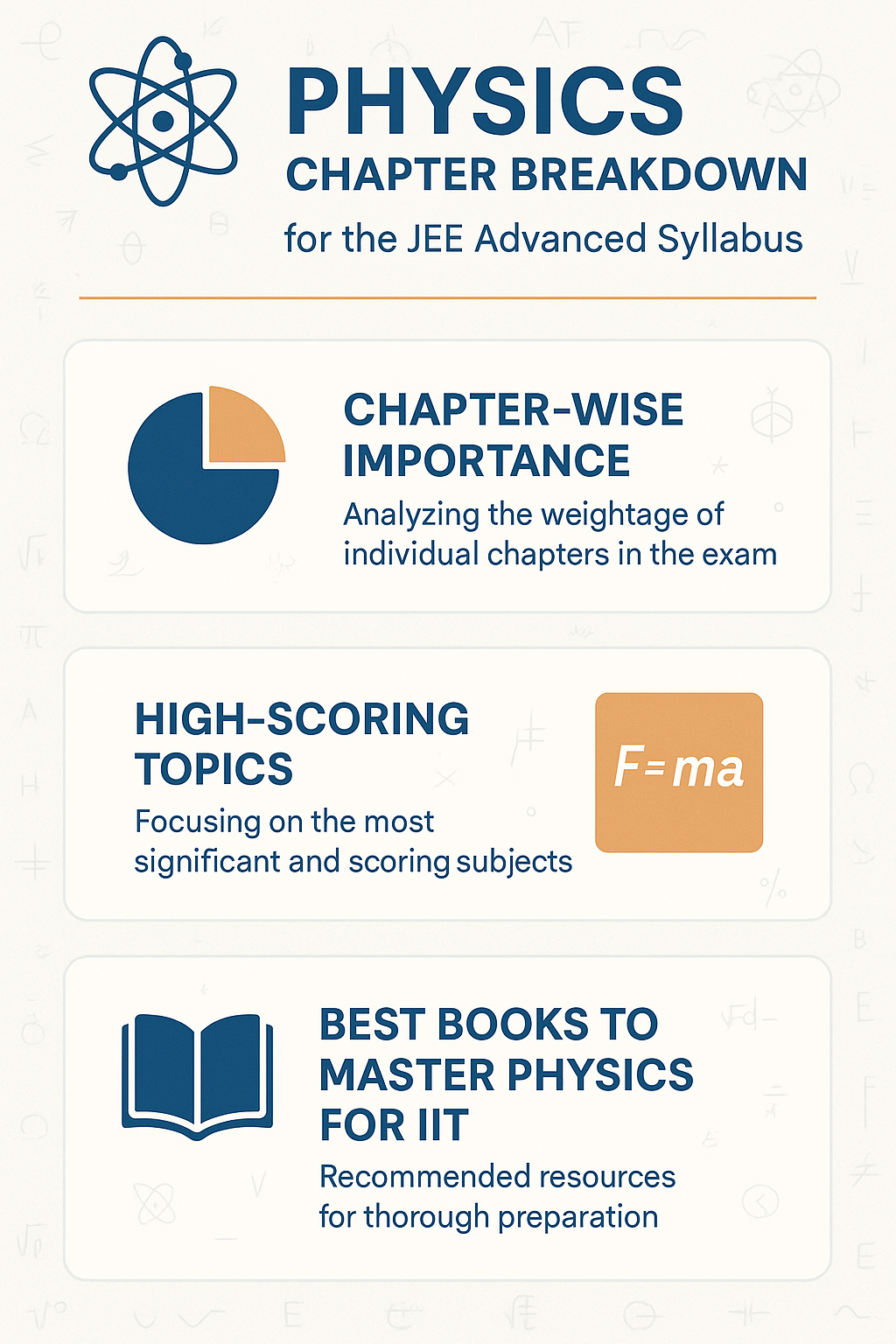
Explore the Physics portion of the JEE Advanced syllabus. Get chapter-wise importance, high-scoring topics, and the...
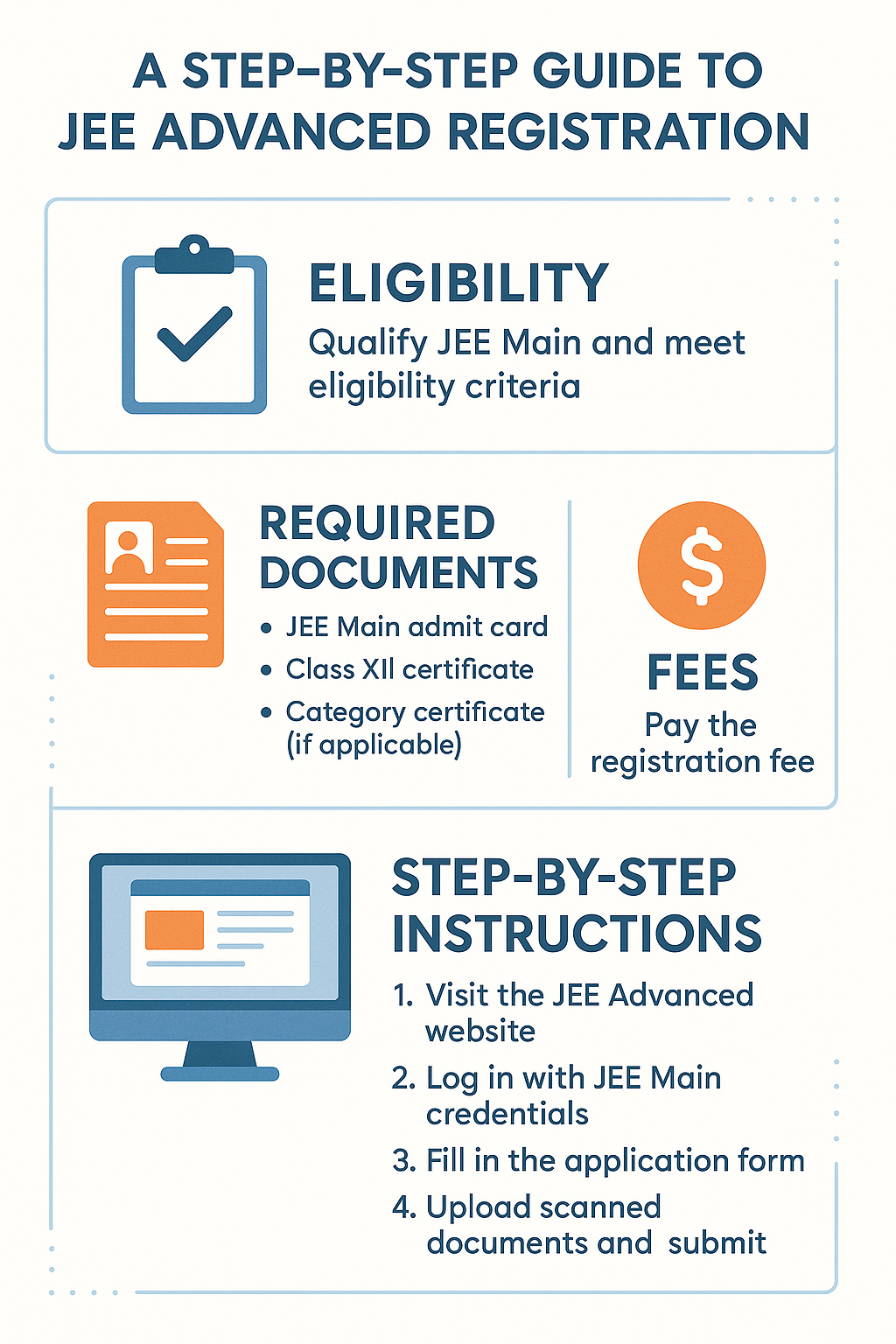
Learn the complete JEE Advanced registration process. Check eligibility, required documents, fees, and step-by-step...
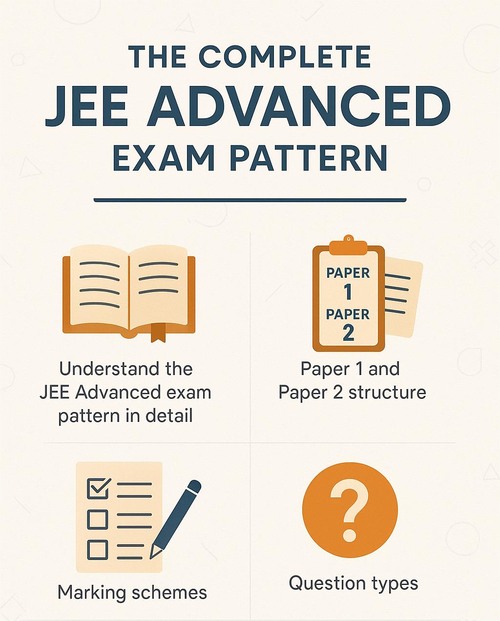
Understand the JEE Advanced exam pattern in detail. Learn about Paper 1 and Paper 2 structure, marking schemes,...

Find out the minimum percentile required for JEE Advanced eligibility. Learn category-wise cutoff trends, rules, and...

Wondering how many attempts are allowed for JEE Advanced? Learn the official rules, eligibility criteria, and...
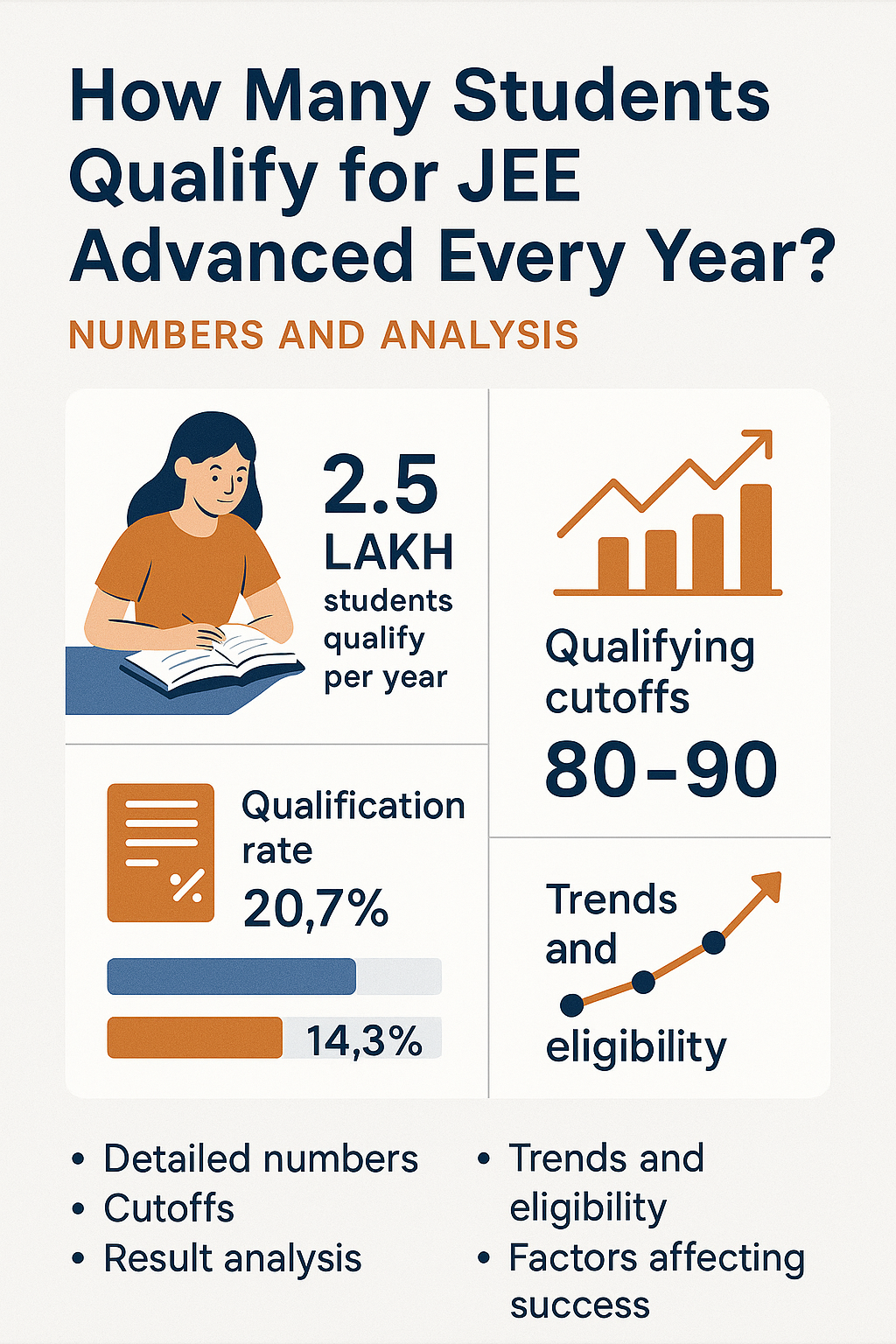
Discover how many students qualify for JEE Advanced every year with detailed numbers, cutoffs, and result analysis....

Stay updated with the latest JEE Advanced news. Get details on exam dates, registration process, results, and...
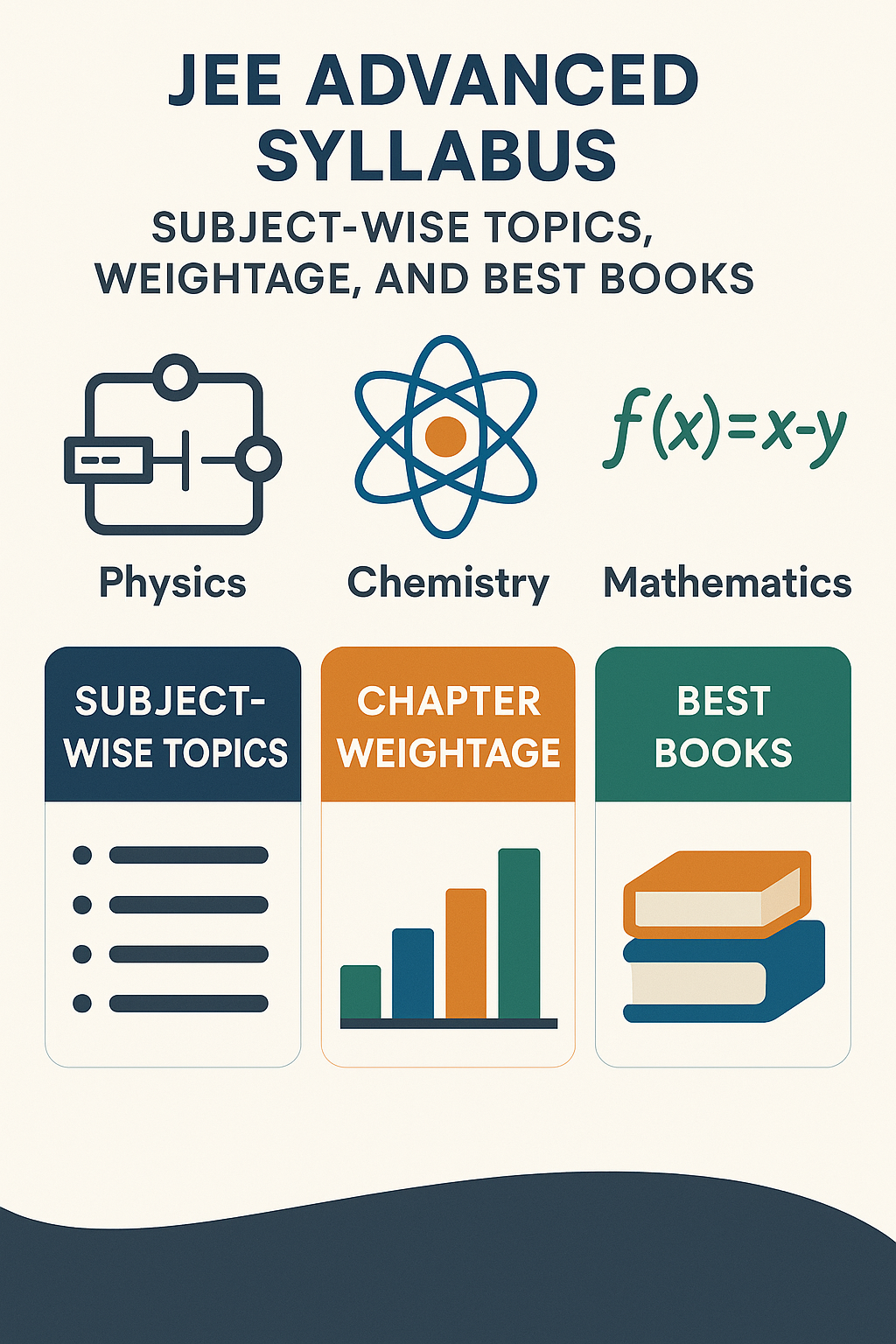
Explore the complete JEE Advanced syllabus with subject-wise topics, chapter weightage, and best books for Physics,...
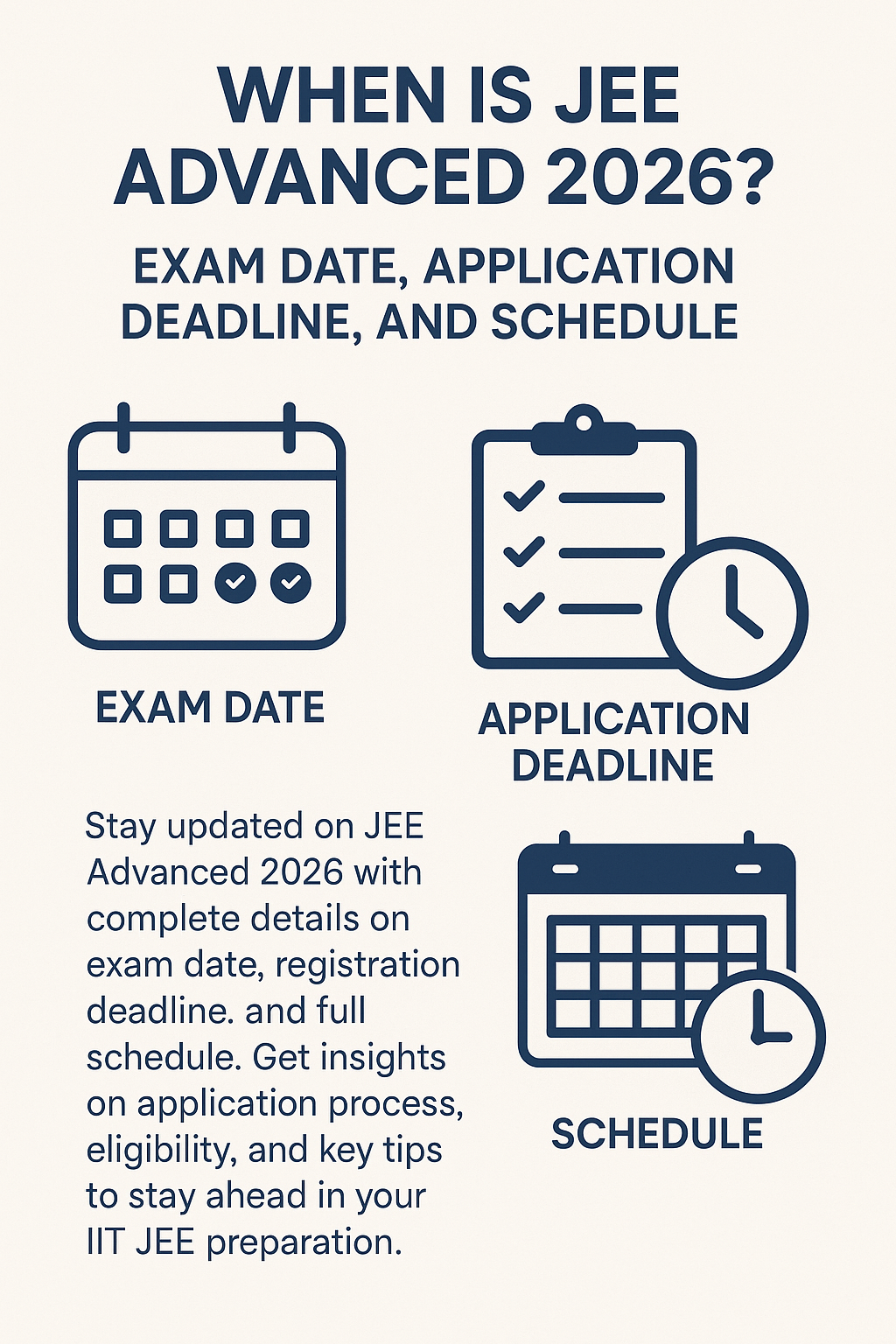
Stay updated on JEE Advanced 2026 with complete details on exam date, registration deadline, and full schedule. Get...
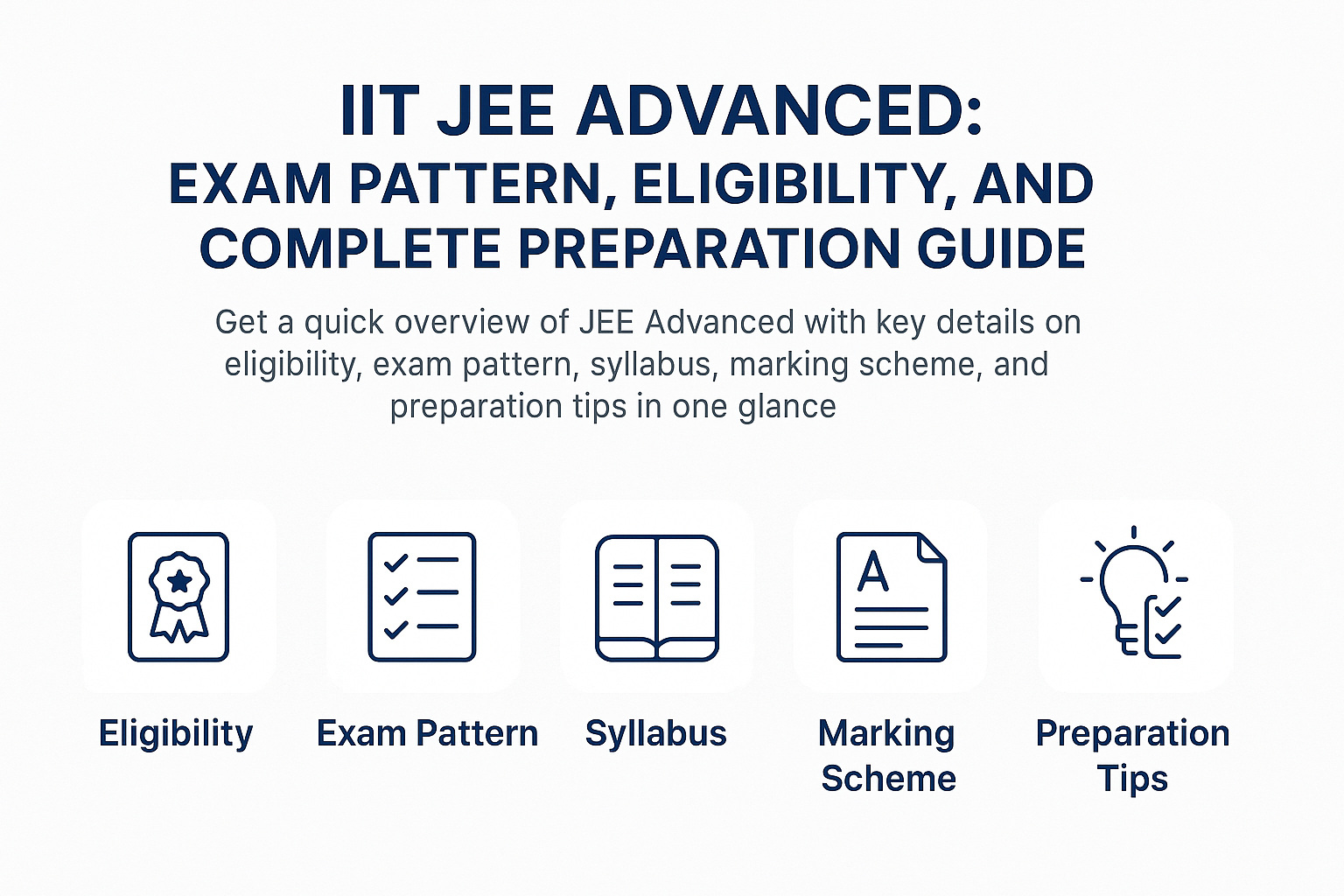
Get a quick overview of JEE Advanced with key details on eligibility, exam pattern, syllabus, marking scheme, and...

Curious about JEE Advanced marks vs rank? Explore expected cutoffs, past year trends, and how your score translates...
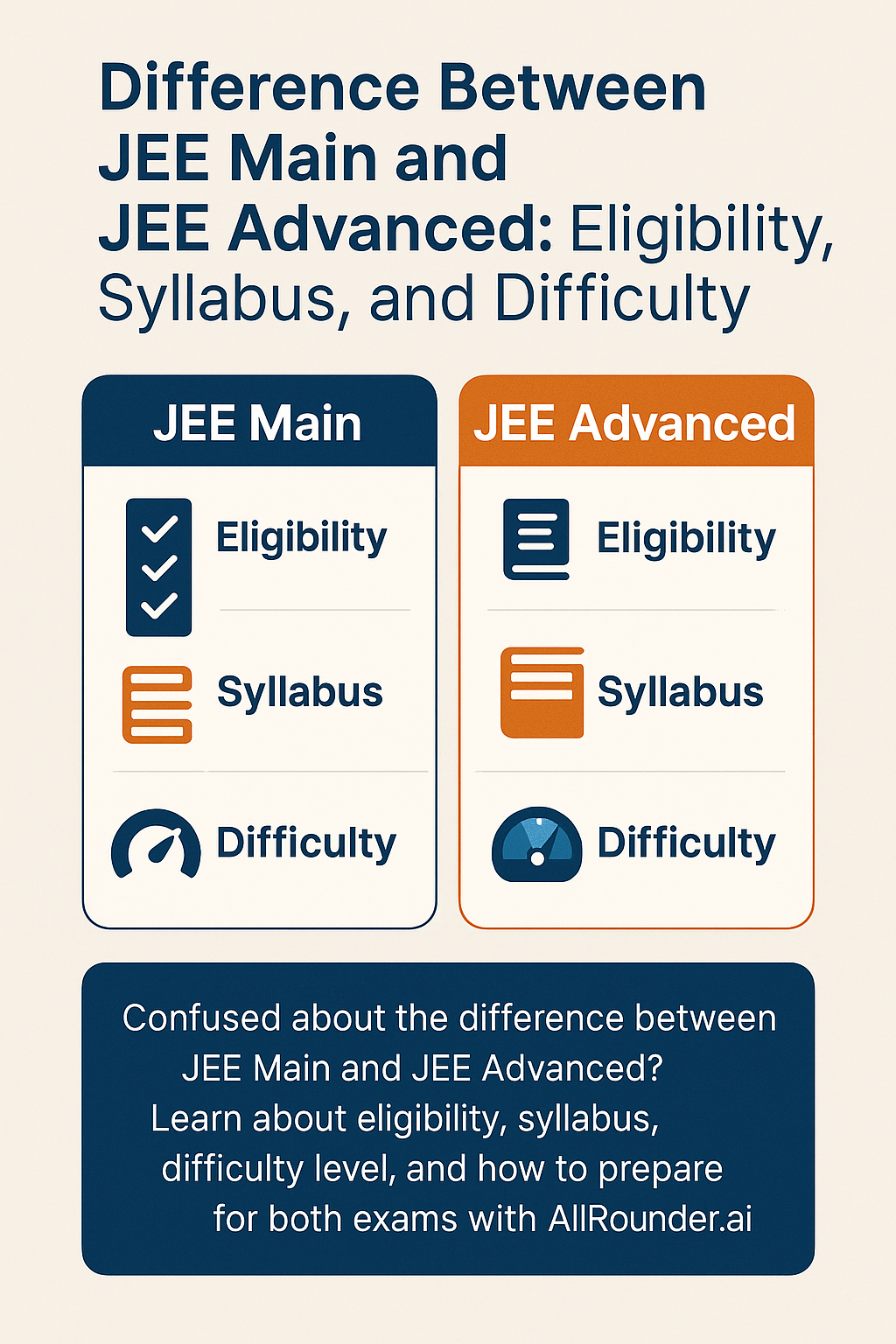
Confused about the difference between JEE Main and JEE Advanced? Learn about eligibility, syllabus, difficulty...
Resources
-
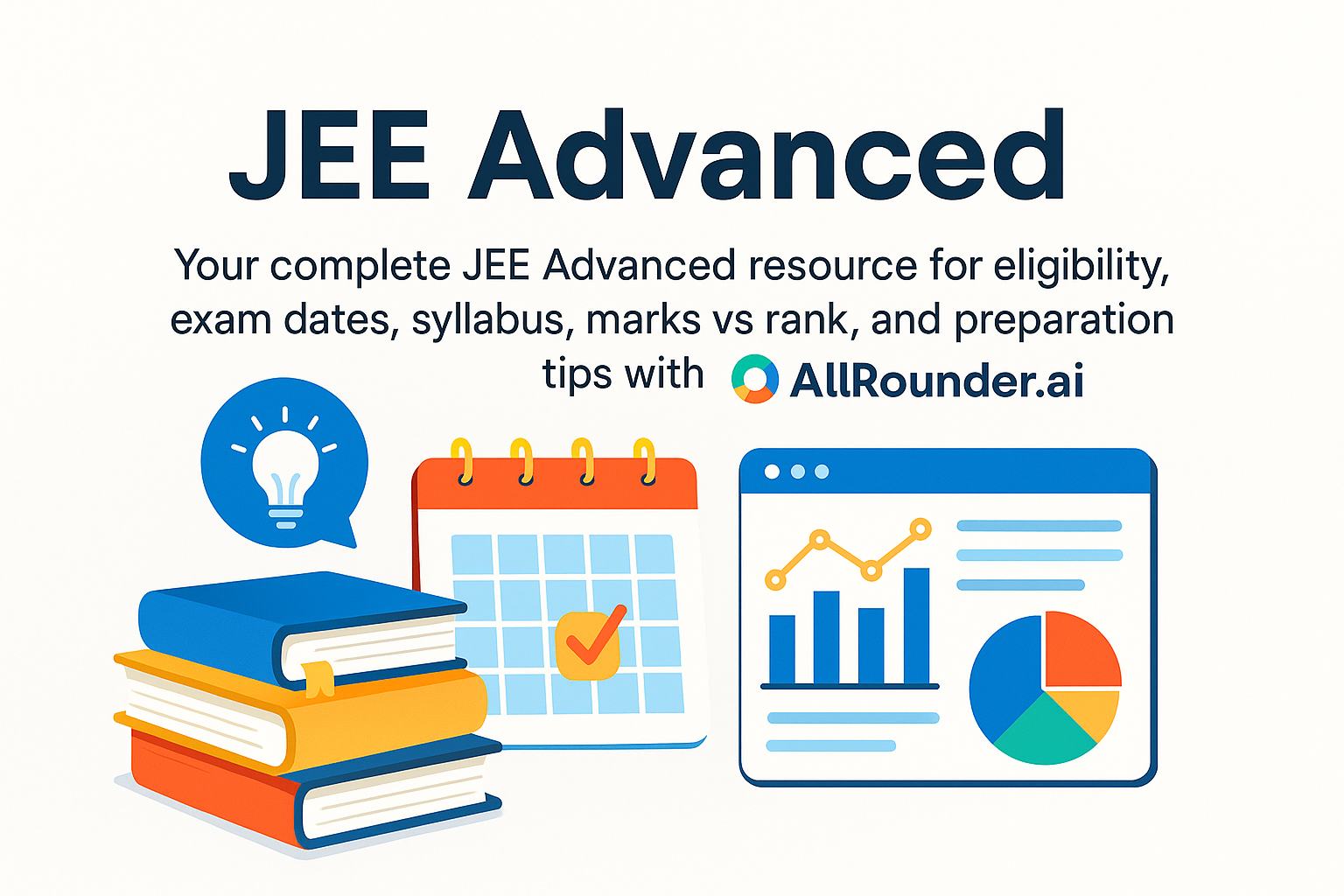
Your complete JEE Advanced resource for eligibility, exam dates, syllabus, marks vs rank, and...
-
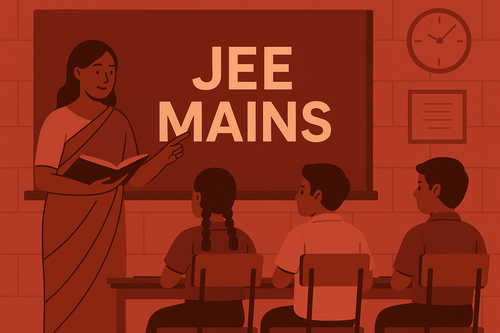
Understand the entire JEE Main process, from application and eligibility rules to the exam...
-

Explore the IB Board – a global curriculum emphasizing holistic, student-centered learning...
-

Learn about CBSE – India’s national school board offering a standardized curriculum, NCERT...
-

Explore everything about the ICSE board – its curriculum, subjects, exam format, and academic...

